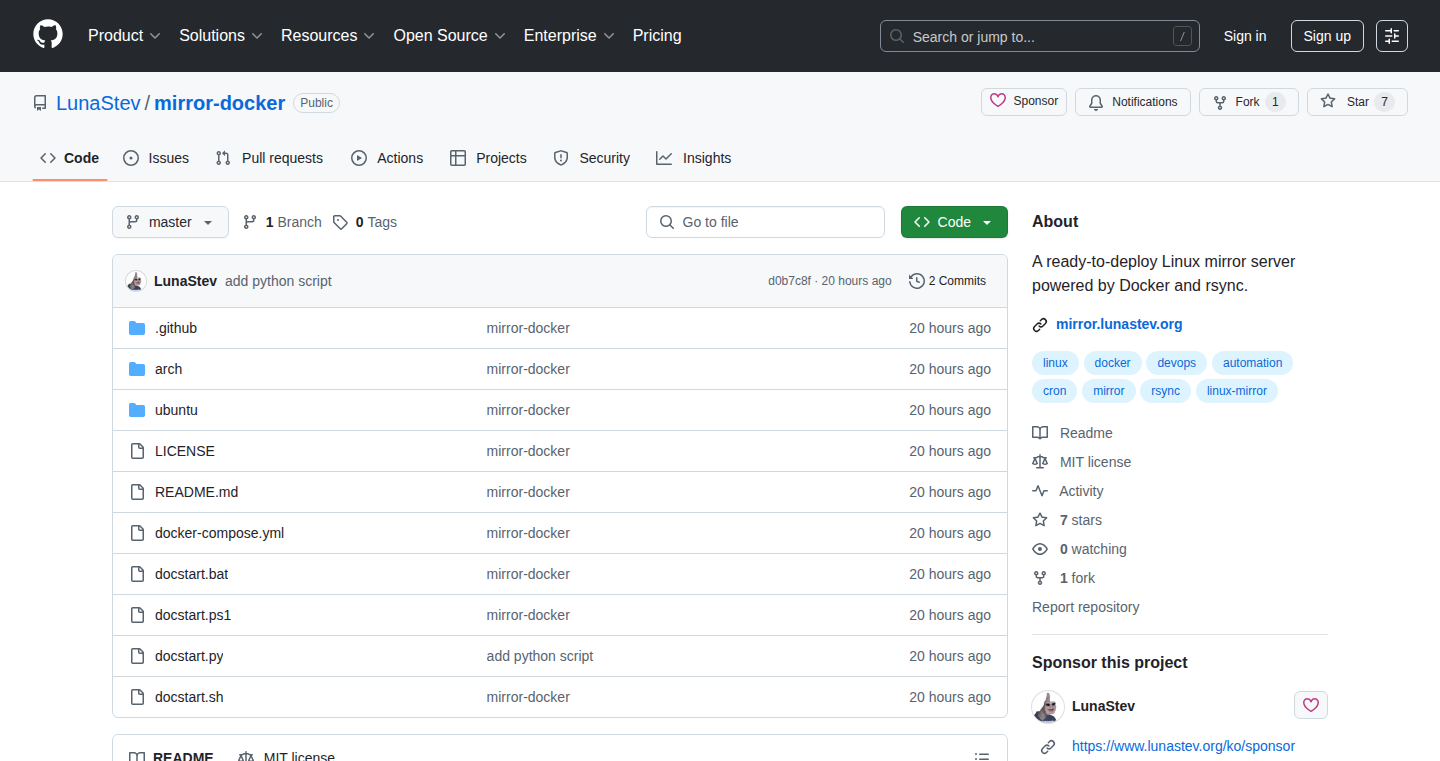

Highlight 1
The ability to launch a mirror server with a single script significantly reduces setup time and complexity for users.
Highlight 2
By utilizing rsync and cron, the app ensures that mirrors are regularly updated and can serve files efficiently through nginx.
Highlight 3
Supports both Arch and Ubuntu distributions, catering to a wider audience and various use cases, including custom developments and offline setups.

Improvement 1
Enhancing the documentation to provide step-by-step setup guidance or troubleshooting tips could help new users navigate the system effortlessly.
Improvement 2
While being primarily command-line driven is suitable for many developers, integrating a simple web-based interface could improve the user experience and accessibility for less technical users.
Improvement 3
Providing more advanced configuration settings may benefit power users who wish to tailor the mirror setup to more specific needs.
Product Functionality
Adding a web-based dashboard to monitor sync status and server health could enhance user engagement.
UI & UX
Consider designing a user-friendly interface for configuration and management instead of relying solely on command line, which could attract non-technical users.
SEO or Marketing
Improving the visibility of the product on search engines through keywords related to Docker and mirror servers could attract more users.
MultiLanguage Support
Implementing multi-language support for the documentation and interface can broaden the product's appeal to non-English speaking users.
- 1
What distributions can I host with mirror-docker?
You can host mirrors for both Arch and Ubuntu distributions.
- 2
How do I update my mirror?
The mirror automatically syncs with upstream mirrors using cron, so you don't have to worry about updates manually.
- 3
Do I need to install Docker separately?
Yes, you need to have Docker installed on your system before running the mirror-docker scripts.
